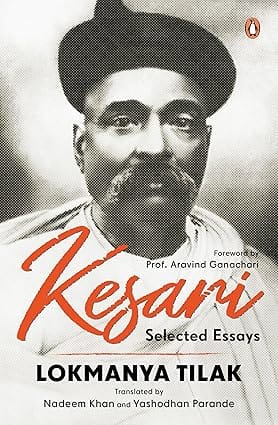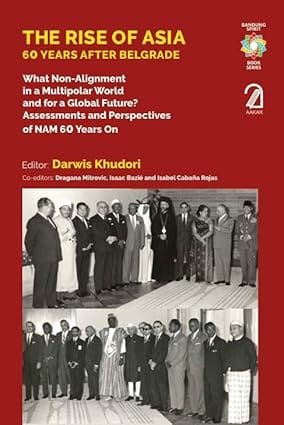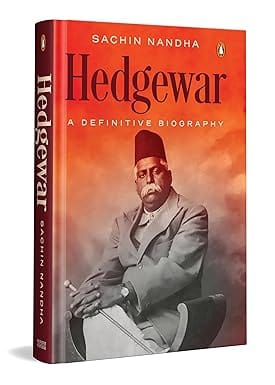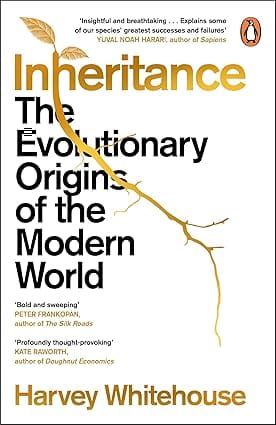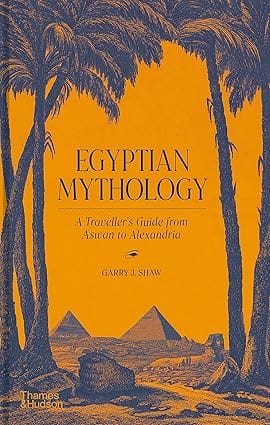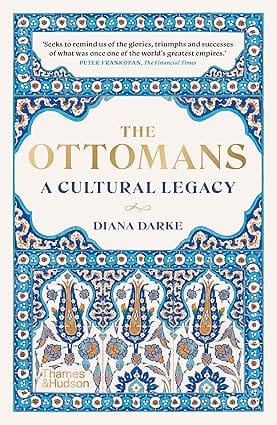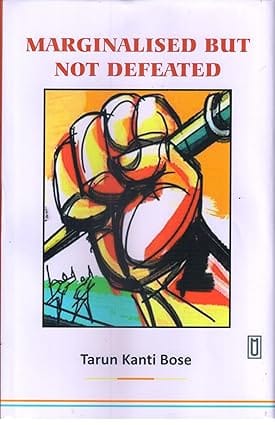WELCOME TO MIDLAND BOOK SHOP!
SHOP FOR
- Contemporary Fiction
- Contemporary Fiction
- Children
- Children
- Comics & Graphic Novels
- Comics & Graphic Novels
- Non-Fiction
- Non-Fiction
- Fiction
- Fiction
Shop No.20, Aurobindo Palace Market, Hauz Khas, Near Church +91 9818282497 | 011 26867121 110016 New Delhi IN
Midland The Book Shop ™
Shop No.20, Aurobindo Palace Market, Hauz Khas, Near Church +91 9818282497 | 011 26867121 New Delhi, IN
+919871604786 https://www.midlandbookshop.com/s/607fe93d7eafcac1f2c73ea4/677cda367903fd013d69b606/without-tag-line-480x480.png" [email protected]9780143469988 67b9c562165718003e3e58b4 Kesari Selected Essays https://www.midlandbookshop.com/s/607fe93d7eafcac1f2c73ea4/67b9c563165718003e3e58bc/91kdgnphfll-_sy425_.jpg 9780143469988
Lokmanya Bal Gangadhar Tilak is one of the first and central figures of Indian nationalist movement. He was a radical and upheld the concepts of Swadeshi, Boycott and Swaraj. Kesari became the mouthpiece of Tilak’s political ideas and that of the Indian nationalist movement.
This collection includes essays published in Kesari between 1886 and 1918 on topics ranging from the Indian National Congress, Economy to Nationalism, and expresses Tilak’s views on sedition, women’s rights and education.
Translated by Nadeem Khan and Yashodhan Parande, the essays are a peak into the crucial moments of Indian history and the writings of Lokmanya Tilak.
This collection includes essays published in Kesari between 1886 and 1918 on topics ranging from the Indian National Congress, Economy to Nationalism, and expresses Tilak’s views on sedition, women’s rights and education.
Translated by Nadeem Khan and Yashodhan Parande, the essays are a peak into the crucial moments of Indian history and the writings of Lokmanya Tilak.
About the Author
Lokmanya Bal Gangadhar Tilak (1856 – 1920) was born in Ratnagiri district of the present day Maharashtra. After completing his BA degree in Mathematics from the Deccan College, he started teaching. Tilak soon started Kesari in Marathi and Maharatta in English which became leading newspapers of the Deccan and the mouthpiece of Indian Nationalist movements. He along with Ganesh Agarkar set up the Deccan Educational Society. He joined the Indian National Congress in 1880 and formed close relationships with Lala Lajpat Rai, and Bipin Chandra Pal. Tilak popularised the concepts of Swadeshi, Boycott and Swaraj much before Mahatma Gandhi. He was referred to as the ‘Father of Indian Unrest’ and was arrested multiple times on charges of sedition.
Nadeem Khan has been a teacher of English since 1973. He was the founder-director of the Western Regional Centre of the Indian Institute of Mass Communication, an autonomous institute run by the Ministry of Information and Broadcasting, Government of India, from 2011 to 2018. He has translated well over a dozen books-mainly from Marathi into English-including Vishwas Patil's celebrated Marathi novel Panipat and Avadhoot Dongare's Sahitya Akademi Award-winning novel Swatahala Phaltu Samajnyaachi Gosht. He is the winner of the Valley of Words award for the best-translated book for the year 2020.
Nadeem Khan has been a teacher of English since 1973. He was the founder-director of the Western Regional Centre of the Indian Institute of Mass Communication, an autonomous institute run by the Ministry of Information and Broadcasting, Government of India, from 2011 to 2018. He has translated well over a dozen books-mainly from Marathi into English-including Vishwas Patil's celebrated Marathi novel Panipat and Avadhoot Dongare's Sahitya Akademi Award-winning novel Swatahala Phaltu Samajnyaachi Gosht. He is the winner of the Valley of Words award for the best-translated book for the year 2020.
in stockINR 799
1 1
Email ID already exists!
Your Current password is incorrect
Password Updated Successfully
Thanks for your Feedback
Kesari Selected Essays
ISBN: 9780143469988
₹799
₹999 (20% OFF)SIZE GUIDE
Sold By: Hauz Khas - Aurobindo Market
Details
- ISBN: 9780143469988
- Author: Nadeem Khan Yashodhan Parande
- Publisher: Penguin Vintage
- Pages: 400
- Format: Hardback
Book Description
Lokmanya Bal Gangadhar Tilak is one of the first and central figures of Indian nationalist movement. He was a radical and upheld the concepts of Swadeshi, Boycott and Swaraj. Kesari became the mouthpiece of Tilak’s political ideas and that of the Indian nationalist movement.
This collection includes essays published in Kesari between 1886 and 1918 on topics ranging from the Indian National Congress, Economy to Nationalism, and expresses Tilak’s views on sedition, women’s rights and education.
Translated by Nadeem Khan and Yashodhan Parande, the essays are a peak into the crucial moments of Indian history and the writings of Lokmanya Tilak.
This collection includes essays published in Kesari between 1886 and 1918 on topics ranging from the Indian National Congress, Economy to Nationalism, and expresses Tilak’s views on sedition, women’s rights and education.
Translated by Nadeem Khan and Yashodhan Parande, the essays are a peak into the crucial moments of Indian history and the writings of Lokmanya Tilak.
About the Author
Lokmanya Bal Gangadhar Tilak (1856 – 1920) was born in Ratnagiri district of the present day Maharashtra. After completing his BA degree in Mathematics from the Deccan College, he started teaching. Tilak soon started Kesari in Marathi and Maharatta in English which became leading newspapers of the Deccan and the mouthpiece of Indian Nationalist movements. He along with Ganesh Agarkar set up the Deccan Educational Society. He joined the Indian National Congress in 1880 and formed close relationships with Lala Lajpat Rai, and Bipin Chandra Pal. Tilak popularised the concepts of Swadeshi, Boycott and Swaraj much before Mahatma Gandhi. He was referred to as the ‘Father of Indian Unrest’ and was arrested multiple times on charges of sedition.
Nadeem Khan has been a teacher of English since 1973. He was the founder-director of the Western Regional Centre of the Indian Institute of Mass Communication, an autonomous institute run by the Ministry of Information and Broadcasting, Government of India, from 2011 to 2018. He has translated well over a dozen books-mainly from Marathi into English-including Vishwas Patil's celebrated Marathi novel Panipat and Avadhoot Dongare's Sahitya Akademi Award-winning novel Swatahala Phaltu Samajnyaachi Gosht. He is the winner of the Valley of Words award for the best-translated book for the year 2020.
Nadeem Khan has been a teacher of English since 1973. He was the founder-director of the Western Regional Centre of the Indian Institute of Mass Communication, an autonomous institute run by the Ministry of Information and Broadcasting, Government of India, from 2011 to 2018. He has translated well over a dozen books-mainly from Marathi into English-including Vishwas Patil's celebrated Marathi novel Panipat and Avadhoot Dongare's Sahitya Akademi Award-winning novel Swatahala Phaltu Samajnyaachi Gosht. He is the winner of the Valley of Words award for the best-translated book for the year 2020.
User reviews
NEWSLETTER
Subscribe to get Email Updates!
Thanks for subscribing.
Your response has been recorded.

India's Iconic & Independent Book Store offering a vast selection of books across a variety of genres Since 1978.
"We Believe In The Power of Books" Our mission is to make books accessible to everyone, and to cultivate a culture of reading and learning. We strive to provide a wide range of books, from classic literature, sci-fi and fantasy, to graphic novels, biographies and self-help books, so that everyone can find something to read.
Whether you’re looking for your next great read, a gift for someone special, or just browsing, Midland is here to make your book-buying experience easy and enjoyable.
We are shipping pan India and across the world.
For Bulk Order / Corporate Gifting
 +91 9818282497 |
+91 9818282497 |  [email protected]
[email protected]
Click To Know More
INFORMATION
QUICK LINKS
ADDRESS
Midland Book Shop - Hauz Khas
Shop No.20, Aurobindo Palace Market, Near Church, New Delhi
Shop No.20, Aurobindo Palace Market, Near Church, New Delhi

